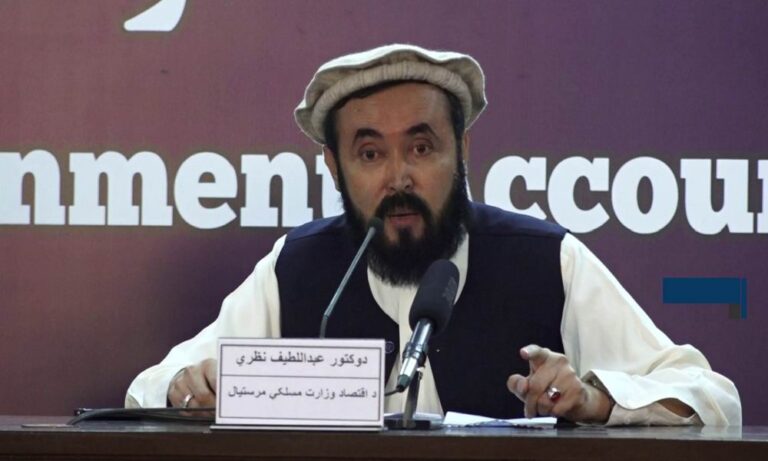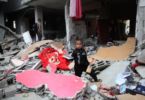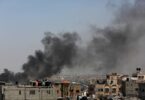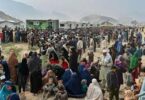Afghan Deputy Minister for Economy, Abdul Latif Nazari has recently told the media that a plan is being drawn up for women’s return to work and the current restrictions on women in the workspace are not necessarily permanent. Minister noted that over 14 thousand women work in Health Sector, while they also work in banks, airports, Schools, and other departments in the government. According to him, the IEA is seriously considering the public demand, while the interim authorities would also engage with the global community over this issue, which is based on Islamic values and Afghan national interests. As said, the IEA believes in using domestic and indigenous potential in the country instead of relying on foreign aid and monetary assistance. According to him, the IEA remained engaged in averting a possible economic collapse last year while it is endeavoring hard for economic growth and development work in the current year.
After months-long agitations and a stubborn attitude of the Islamic Emirate of Afghanistan (IEA), finally, a gust of fresh air comes after a senior Taliban leader made an announcement about a proposed plan which would enable Afghan women to resume their jobs in certain fields that were previously banned by the cleric regime in December last year. Earlier, the Islamic Emirate imposed restrictions on girls higher education shutting down the doors of universities and professional institutes for Afghan girls in the country. Those actions of the Taliban rulers practically rendered the near half of the country’s population nonproductive and futile. The IEA’s move faced widespread reaction from the public and from across the world including Muslim and non-Muslim countries that strongly demanded a reversal of those restrictions that seriously hurt the Afghan girls and women who were already embattled with terrible living conditions, poverty, and scarcity of resources/ opportunities. Historically, thousands of Afghan soldiers perish to death in the decades-long conflicts and unceasing rivalries in the past, while their widows had been the sole homemakers through laboring, small businesses, shopkeeping, etc. Similarly, talented Afghan girls have high ambitions regarding a bright future after higher education, skilled training, and other opportunities available to them. But, all those high hopes and fascinating dreams met in the trash, after the Afghan interim authorities declared those blessings illegal, sinful, and contradictory to Islamic values, Afghan national interests, and social ethics, which otherwise has no example in the past.
Today, women are the backbone of families and communities, as no household can survive and thrive without women, who provide care, support, and nurturing to their families and play an essential role in the growth/ development of their children. Women’s importance had increased many folds in war-torn societies, where a significant number of the male population had been killed or become disabled in the war/ tribal conflicts, and women are running their businesses and making their livelihood independently. Accoridng to statistics, the ratio of unemployment and the menace of begging had increased unimaginably after a banned was placed on women’s employment by the interim authorities in late 2022. Meanwhile, a majority of Afghan youth fear reprisal from the interim authorities and see no future in their nation, which prompted a mass exodus from the country. There had been uninterrupted calls from the United Nations and the global community urging the Afghan interim government to uphold its obligations in respect of the Doha agreements and the global responsibility regarding the protection of human and women’s rights, preservation of civil liberties, inclusiveness and no tolerance for terrorism so the decades-long conflict permanently comes to an end. Such situations undoubtedly should have been a matter of concern for the interim authorities who gained power after two decades of struggle and claimed to be having a magnificent plan of social and economic revival of the country that was previously derailed by the events following the 9/11 attacks in the United States.
Presently, The Islamic Emirate of Afghanistan has considered the public aspirations and started a review of its policies regarding women’s jobs and girls’ education. Hopefully, this sagacious trend will further expand to other avenues including human and civil rights, media freedoms, the inclusiveness of the Afghan interim government, and no tolerance for extremism and terrorism that would surely bring peace, and interfaith harmony in the war-hit nation, which would provide basis for the sustainable development and economic prosperity in the country.







